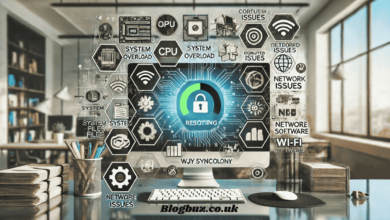How AI and Automation Are Transforming Lead Generation in 2025

The landscape of lead generation has undergone significant changes in recent years, and as we look toward 2025, the role of artificial intelligence (AI) and automation in this space has become more pronounced. Businesses across industries are increasingly turning to AI, machine learning, and automated systems to streamline their lead generation processes, improve efficiency, and enhance the customer experience.
Understanding Lead Generation
Before diving into the impact of AI and automation, let’s first define lead generation. In simple terms, lead generation is the process of attracting and converting strangers or potential customers into people who have expressed interest in your products or services. This typically involves using various marketing strategies such as content marketing, email campaigns, SEO, paid ads, and more. Traditional lead generation strategies often required significant manual effort and had limited scalability.
The Role of AI in Lead Generation
Artificial intelligence and automation are game-changers when it comes to lead generation. Here’s a look at how these technologies are transforming the process:
1. Enhanced Data Collection and Analysis
One of the key challenges in lead generation has always been understanding potential customers and their behaviors. AI, particularly through machine learning algorithms, can analyze vast amounts of data from various sources, including social media, web browsing behavior, email responses, and more.
By examining patterns and trends in this data, AI can help businesses identify which leads are more likely to convert into customers. This predictive analysis allows marketers to target the right audience at the right time with personalized offers and content.
2. Automation of Routine Tasks
In the world of lead generation services, efficiency is key. Automation tools have made it possible to reduce the time spent on repetitive tasks such as sending follow-up emails, scheduling appointments, and nurturing leads. This allows businesses to focus on higher-level tasks, like strategy development and relationship-building.
For instance, marketing automation platforms like HubSpot and Marketo enable businesses to set up automated workflows that nurture leads based on their interactions with the company.
3. Chatbots and Conversational AI
Chatbots and conversational AI have become essential tools for engaging with potential leads in real time. These tools are capable of answering questions, qualifying leads, and even guiding visitors through the sales funnel.
In 2025, conversational AI will continue to improve, making it easier for businesses to engage with potential customers at all hours of the day. Chatbots can help businesses qualify leads by asking a series of questions to assess the potential fit of the customer.
4. Predictive Lead Scoring
Traditional lead-scoring methods were based on basic criteria like demographic information and engagement history. However, predictive lead scoring uses AI algorithms to analyze historical data and predict which leads are most likely to convert into customers.
Predictive lead scoring takes into account a variety of factors, including engagement patterns, past purchasing behavior, and even social media activity. This gives businesses a more accurate view of their leads, allowing sales teams to prioritize their efforts on the leads most likely to convert.
5. Personalized Marketing at Scale
Personalization has always been a key factor in successful lead generation, but achieving a high level of personalization at scale has been challenging for businesses. AI and automation tools have made it possible to deliver personalized content, offers, and messages to large numbers of leads without manual intervention.
AI tools can analyze a lead’s browsing history, purchase behavior, and demographic information to serve up personalized content, product recommendations, and email messages that resonate with the individual.
Challenges and Considerations for AI-Driven Lead Generation
While AI and automation have brought significant advantages to lead generation, there are challenges businesses must consider:
- Data Privacy: As AI tools collect and analyze large amounts of customer data, businesses must ensure they are compliant with data privacy regulations such as GDPR and CCPA.
- Integration: Implementing AI and automation tools can require a significant investment in new technologies and processes. Businesses need to ensure their systems are compatible and can integrate with existing platforms.
- Quality vs. Quantity: While AI can help generate leads at scale, businesses must still focus on the quality of leads. Relying too heavily on automation can lead to an influx of low-quality leads, which may harm sales teams’ efficiency.
Conclusion
The future of lead generation is undoubtedly intertwined with AI and automation. As businesses continue to adopt these technologies, they can expect improved efficiency, better-targeted leads, and more personalized customer experiences. By leveraging AI-driven tools such as predictive lead scoring, chatbots, and CRM systems, businesses can generate and nurture leads more effectively, ultimately driving growth in 2025 and beyond.
Frequently Asked Questions (FAQs)
1. How does AI help improve lead generation?
AI helps improve lead generation by analyzing large sets of data, predicting which leads are most likely to convert, and automating tasks such as email follow-ups and lead scoring. This leads to more efficient and personalized marketing efforts.
2. What is predictive lead scoring?
Predictive lead scoring uses AI to analyze historical data and predict which leads are most likely to convert into paying customers. It considers a wide range of factors, such as engagement patterns and past behaviors, to help sales teams prioritize their efforts.
3. Are AI chatbots effective for lead generation?
Yes, AI chatbots are highly effective for lead generation. They can engage website visitors in real time, qualify leads by asking relevant questions, schedule follow-up meetings, or hand over promising leads to sales representatives.
4. What are the main challenges of using AI for lead generation?
The main challenges include data privacy concerns, the need for integration with existing systems, and the balance between the quantity and quality of leads. Businesses must ensure they are compliant with data regulations and that AI tools align with their overall strategy.




